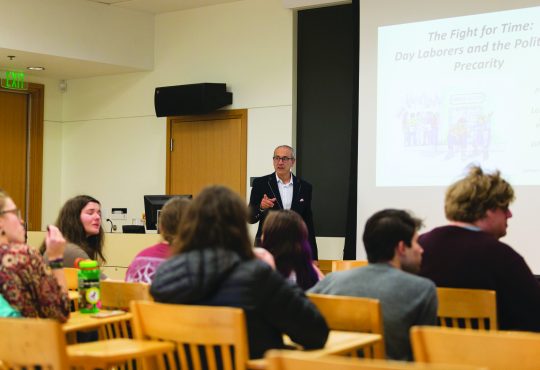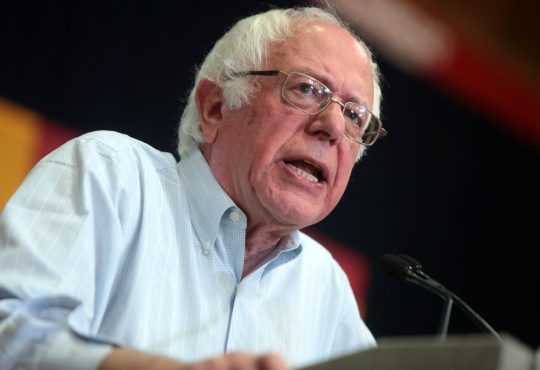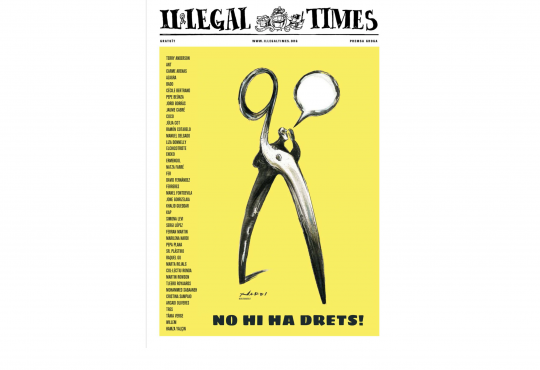
In the current age of digital media, the playbook of politics has been rewritten into something entirely new, personal and relentlessly critical. Politicians are slowly learning that speaking to younger Americans means speaking a different language than that of Capitol Hill, and that can be just as much a blessing as it is a curse.
Virginia Governor Ralph Northam is presently navigating his way out of a messy debacle and feeling the sharp end of the digital media stick, after a photo from his medical school yearbook page went viral. The photo depicts two men, one dressed in an antebellum suit and covered in blackface, the other wearing the hood and robe of the Ku Klux Klan. Both of the men are holding what appear to be beers. Neither of their faces is identifiable.
In CNN’s article titled “Virginia Gov. Northam says he wants ‘to heal that pain’ of racial inequality, won’t resign,” Veronica Stracqualursi writes, “Northam initially apologized and said he was one of the people in the photo.” Later, he recanted in an hour-long news conference saying he was not in the picture.
He also revealed that he had worn blackface in a separate incident, when he performed dressed as Michael Jackson in a dance competition in the 1980s.
This uncertain and misleading warping of the truth is not uncommon for white folks caught in a racist act. It is unsurprising that this liberal governor has a history with racism — truthfully, all white people do — but it’s even less surprising that his first action when confronted with the issue was to transform it into self-defense dipped in sympathetic confession in order to lessen the blow.
Judging by his decision not to resign over the scandal, it’s clear that Northam, just like many Americans, can’t understand the painful and traumatic history of blackface minstrelsy and the weight it carries.
Dr. Dwandalyn Reece, a curator at the National Museum of African-American History and Culture, spoke with VICE News in their article “Ralph Northam is forcing America to confront the painful legacy of blackface. Again.”
The article states, “The use of blackface dates back to the mid-1800s, when minstrelsy was a growing form of entertainment.”
Reece says that it was “whites dressing up and caricaturing African-Americans … mimicking their dance, their language, their music, but providing a caricature that provided comic relief for their audiences.”
Even though Northam said he regrets he did not understand the harmful legacy of an action like that, he told his cabinet that he would not be resigning.
“I intend to continue doing the business of Virginia,” he told CNN, adding that “resigning would be the easier way out. I could spare myself from the difficult path that lies ahead. I could avoid an honest conversation about harmful actions from my past. I cannot in good conscience choose the path that would be easier for me in an effort to duck my responsibility to reconcile.”
Here we see Northam speaking the language he sees being employed by young politicians such as Alexandria Ocasio-Cortez. At first glance, a humbling, self-sacrificial apology seems honorable coming from the governor, but a closer look reveals how political an apology can be. Northam is making use of his racist incident to keep his job and appeal to a changing and deepening left-wing base, at the cost of ignoring the way his actions have affected black people specifically, who make up almost 20 percent of his state’s population. The truth is, as long as he keeps his job, Northam will never truly have to reconcile with anything, and that’s what makes this such a subtly heinous play.
On top of Northam’s blackface scandal, his Lt. Governor Justin Fairfax is currently under fire for two accusations of sexual assault, causing multiple Virginia lawmakers and 2020 presidential candidates to call for his and Northam’s resignations. Virginia Attorney General Mark Herring also confessed to wearing blackface decades ago.
All three of the Democrats, currently being nodded to as Virginia’s leftist bastion, seem to be intent on remaining in office. By politicizing ignorance and avoiding real blame, the three can expect no tangible consequences for their actions. Despite this century of futuristic technology and overflowing diversity, the past few weeks have made clear that many toxic facets of American politics may never change.






